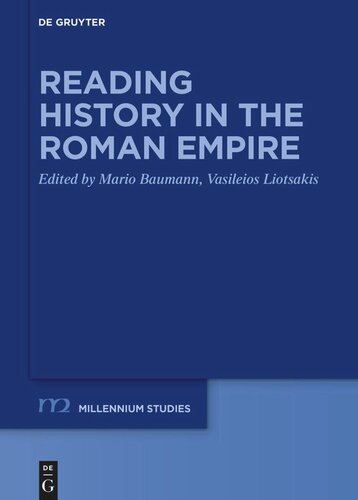

Most ebook files are in PDF format, so you can easily read them using various software such as Foxit Reader or directly on the Google Chrome browser.
Some ebook files are released by publishers in other formats such as .awz, .mobi, .epub, .fb2, etc. You may need to install specific software to read these formats on mobile/PC, such as Calibre.
Please read the tutorial at this link: https://ebookbell.com/faq
We offer FREE conversion to the popular formats you request; however, this may take some time. Therefore, right after payment, please email us, and we will try to provide the service as quickly as possible.
For some exceptional file formats or broken links (if any), please refrain from opening any disputes. Instead, email us first, and we will try to assist within a maximum of 6 hours.
EbookBell Team

5.0
18 reviewsOpen Access
Although the relationship of Greco-Roman historians with their readerships has attracted much scholarly attention, classicists principally focus on individual historians, while there has been no collective work on the matter. The editors of this volume aspire to fill this gap and gather papers which offer an overall view of the Greco-Roman readership and of its interaction with ancient historians. The authors of this book endeavor to define the physiognomy of the audience of history in the Roman Era both by exploring the narrative arrangement of ancient historical prose and by using sources in which Greco-Roman intellectuals address the issue of the readership of history. Ancient historians shaped their accounts taking into consideration their readers’ tastes, and this is evident on many different levels, such as the way a historian fashions his authorial image, addresses his readers, or uses certain compositional strategies to elicit the readers’ affective and cognitive responses to his messages. The papers of this volume analyze these narrative aspects and contextualize them within their socio-political environment in order to reveal the ways ancient readerships interacted with and affected Greco-Roman historical prose.